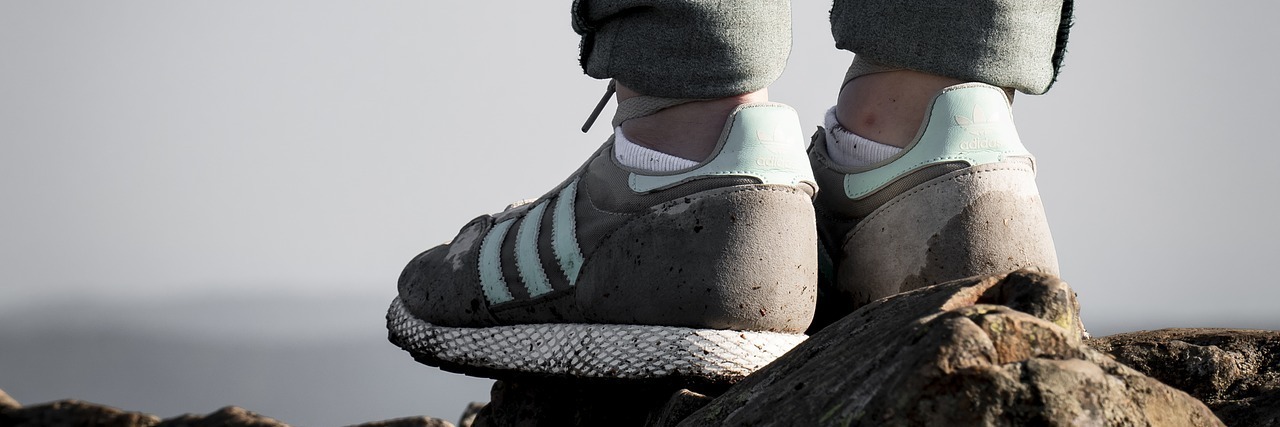It’s September. Where did the summer go? We didn’t have a long summer here this year, considering on May 15 we received 10 inches of snow. That’s not out of the realm of possibilities, considering where I live, but damn it was a fast summer.
Now people are turning their attention to kids being in school, dropping off others off at college, football nights and pumpkin spiced anything. Some people turn their attention to other things — like Balance Awareness Week.
Balance Awareness Week is September 15-21 this year. The goal is to raise awareness for those who have difficulty with maintaining balance due to vestibular disorders. Meniere’s disease is one of those disorders.
That is why VeDA pioneered Balance Awareness Week (BAW) in 1997: to be an opportunity each year to come together and shine a light on these otherwise invisible balance disorders. If we’re all more aware, then we can better understand and be empathetic to those who need our support the most — our family, friends, co-workers and neighbors. Effective treatments are available for many vestibular disorders. Whether treatable or chronic, faster and more accurate diagnosis, along with effective coping strategies can greatly improve quality of life.
The Balance Awareness Week campaign explains:
“While most people may not be familiar with the word ‘vestibular’— relating to your inner ear, brain, and sense of balance — many of us have experienced the awkward, sometimes scary feeling when we momentarily lose our balance. Maybe it’s taking a wrong step or getting motion sickness aboard a jostling boat. Or that nauseating head-spinning sensation after one too many alcoholic beverages. Eventually our balance comes back and life moves on.
This is not the case for the over 69 million Americans who live with the mostly invisible and frequently debilitating symptoms of chronic imbalance associated with a vestibular disorder. Whether it comes on gradually over time or all of a sudden, bouts of dizziness, vertigo and nausea can make many of life’s more routine tasks virtually intolerable. Try to get a good night’s sleep with a high-pitched ringing in your ear, or focus on something as everything around you appears to be spinning. For those living with a vestibular condition, everyday life can becomes a progressively challenging obstacle course to navigate.”
I have bilateral Meniere’s, meaning both ears are involved with this invisible disease, and learning about my life can bring a whole new sense of balance awareness. If you visit our home, you may not even notice that our furniture has been strategically placed to help me be able to touch or hold on to something when needed.
Nightlights are everywhere! In the dark I have zero balance. I actually mean zero.
Walking on the beach, an uneven yard, or a small downwards incline may be hazardous to my balance and health.
I can’t drive at night, or in the rain, or when those beautiful big snowflakes are falling. I can’t drive over a bridge with big overhead supports or even through large construction zones. Yes, these things affect my balance, either driving or as a passenger; I always have to be in the front seat.
Any place that doesn’t have a shopping cart handy requires me to use my walker or my quad cane. Open indoor areas are one of my many concerns when it comes to maintaining my balance.
I wear only shoes that are not above my ankle. Many people think an above the ankle type of shoe would give you more stability. Actually they can give you a false sense of balance. My shoes are flat-bottomed. I change my shoes two to three times a day. Your feet provide valuable input to your balance system. Since I cannot not rely on the signals from my ears, I use the information from my feet to correct my balance.
So why do I change them so often? To keep the flow of information up to date. This allows me to feel the ground in different ways depending on the shoes I wear. In the locker room and pool area I wear a barefoot running type of shoe. In combination with my quad cane, they provide valuable information. They are non-slip, waterproof and lightweight.
All the above are used to increase my balance awareness, plus many more things you would probably never notice unless I pointed them out to you. So take the time to learn about your balance awareness; you may be surprised what you are doing without even realizing it. By increasing your own balance awareness, you can start understanding more about those who have a damaged vestibular system and ways to improve their quality of life.

